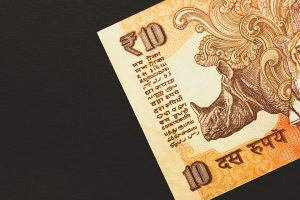Forex, short for foreign exchange, is the largest financial market in the world, with trillions of dollars exchanged daily. Forex brokers are individuals or companies that facilitate trades between buyers and sellers in the forex market. They play an important role in the forex market by providing access to the market to individual traders and investors. As with any business, brokers need to make money to stay in business. In this article, we will discuss how forex brokers make money.
Spreads
The spread is the difference between the bid and ask prices of a currency pair. The bid price is the price at which a broker is willing to buy a currency pair, while the ask price is the price at which a broker is willing to sell the currency pair. The spread is the cost of trading and is usually measured in pips.
Forex brokers make money by charging a spread on each trade executed on their platform. The spread is their commission for facilitating the trade. Forex brokers can offer fixed or variable spreads. Fixed spreads remain constant throughout the trading day while variable spreads fluctuate according to market conditions. Variable spreads tend to be lower during times of high liquidity and higher during times of low liquidity.
Commissions
Another way forex brokers make money is by charging commissions. Some brokers charge a commission on top of the spread for each trade executed on their platform. The commission is usually a fixed amount per lot traded. The commission is deducted from the trader’s account at the time of the trade execution.
Some brokers offer commission-free trading, but they make up for it by widening the spread. It’s important to consider both the spread and commission when choosing a forex broker.
Overnight fees
Forex brokers also make money by charging overnight fees. These fees are charged to traders who hold positions overnight. Forex brokers charge overnight fees because they need to pay the interest rate differential between the currencies in the currency pair.
For example, if a trader buys a currency pair where the base currency has a higher interest rate than the quote currency, the trader will earn interest on the position held overnight. Conversely, if the base currency has a lower interest rate than the quote currency, the trader will pay interest on the position held overnight.
Forex brokers charge overnight fees to cover the interest rate differential and to make a profit. Overnight fees are usually calculated as a percentage of the position size and are deducted from the trader’s account at the end of each day.
Inactivity fees
Some forex brokers charge inactivity fees to traders who do not trade for a certain period of time. The inactivity fee is charged to cover the cost of maintaining the trader’s account. The inactivity fee can be a fixed amount or a percentage of the account balance.
It’s important to note that not all forex brokers charge inactivity fees. Before opening an account with a forex broker, it’s important to read their terms and conditions to understand the fees they charge.
Conclusion
Forex brokers play an important role in the forex market by providing access to the market to individual traders and investors. As with any business, forex brokers need to make money to stay in business. Forex brokers make money by charging spreads, commissions, overnight fees, and inactivity fees. It’s important to consider all of these fees when choosing a forex broker.
Traders should also consider the quality of the broker’s platform, customer support, and regulatory compliance when choosing a forex broker. By choosing a reputable forex broker with competitive fees and a user-friendly platform, traders can have a better chance of success in the forex market.





